If something weighs 87N, what tool did you use to measure the weight?
Spring Scale
Can a physical change be reverted back to the original pieces?
YES!
When you make a statement based on something that you can see or hear, that is called an ________________.
Observation
Identify numbers 1, 2, 3, and 4 as either a metal, metalloid, or nonmetal.
You must get all 4 correct for credit!
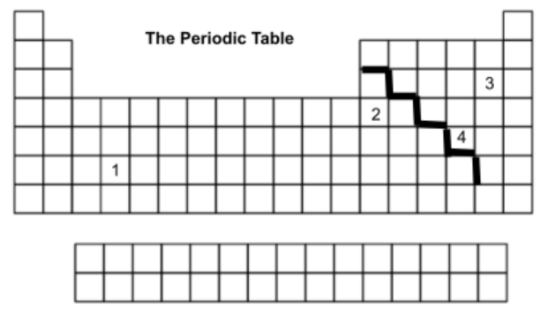
1 & 2 are metals
3 is a nonmetal
4 is a metalloid
What is the state of matter for the following layers:
Continental Crust
Oceanic Crust
Upper Mantle
Middle Mantle
Lower Mantle
Outer Core
Inner Core
Must get ALL correct to get credit!
Continental Crust- SOLID
Oceanic Crust- SOLID
Upper Mantle- SOLID
Middle Mantle- SEMI-SOLID (or Semi-Liquid, or putty-like)
Lower Mantle- SOLID
Outer Core- LIQUID
Inner Core- SOLID
Name the 4 layers in order starting with the outermost layer.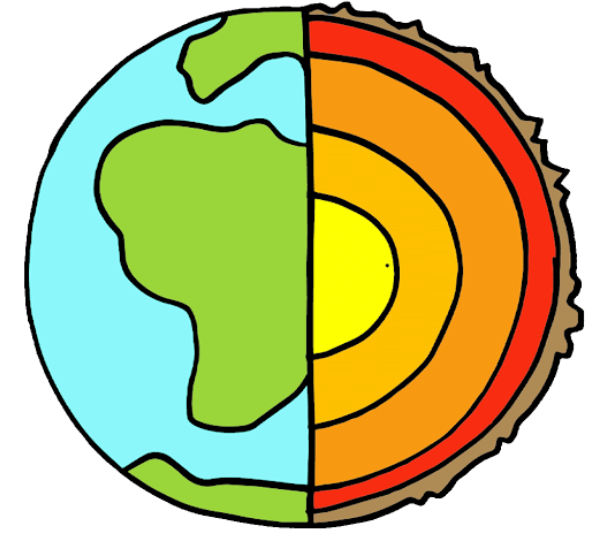
crust, mantle, outer core, inner core
How long is the carrot?
Include UNITS for credit!

18 cm
What are the 5 signs we look for to identify a chemical change?
You must list all 5 for credit. Include whether it needs to be irregular or not!
Precipitate
Gas formed
Odor formed
Temperature change (irregular)
Color change (irregular)
What is the difference between the oxygen in the ocean and the nitrogen in the atmosphere?

There is a 9% difference.
How many elements are in the formula below? How many atoms are in the formula?
You must get BOTH numbers correct for credit!

There are 2 elements. (Al = Aluminum, Cl = Chlorine)
There are 4 atoms. (1 Aluminum & 3 Chlorine)
Why do we also call a transform boundary a STRIKE-SLIP fault, and what does that have to do with earthquakes?
Your description doesn't have to be exactly like mine, but it should be close! **So longer than a couple of words! Mine is 3 sentences!
Transform boundaries slide past each other. While sliding they will "strike" or get stuck when pieces from both sides catch. They will "slip" when the energy builds up enough to move the plates despite being stuck. The "slip" is an earthquake!
What plate is number 4 called?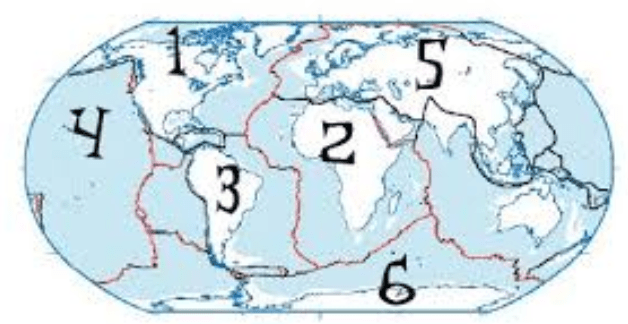
Pacific
Jeremiah the bullfrog decided to test how different the temperature of his pond was before and after a big storm. Before the storm, his pond was 17 degrees Celcius. After the storm, the measurement read what is on the thermometer below. How much did the temperature change?

13 degrees
Density is a physical property of matter. An unknown object has a mass of 178 grams. What would the volume have to be for the object to be copper?
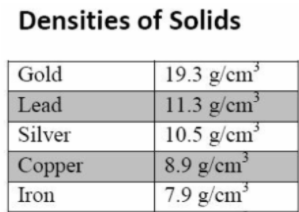
The volume would have to be 20 cm3!
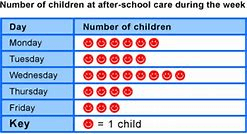
How many more children went to care on Monday and Tuesday combined than on Thursday?
7 children
Determine which sample is a metal, which is a metalloid, and which is a nonmetal.
You must get ALL 3 correct for credit!
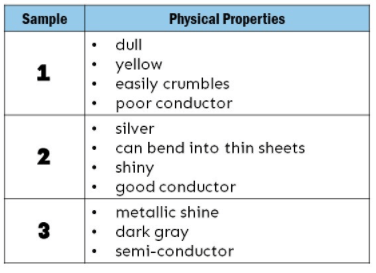
Sample 1- Nonmetal
Sample 2- Metal
Sample 3- Metalloid
What's the difference between a fault and a plate boundary?
A fault line is specifically at a transform boundary.
A plate boundary is where two plates meet
(could be transform, divergent, or convergent)
What does a divergent boundary under the ocean cause? Hint:The lines in the picture show the answer.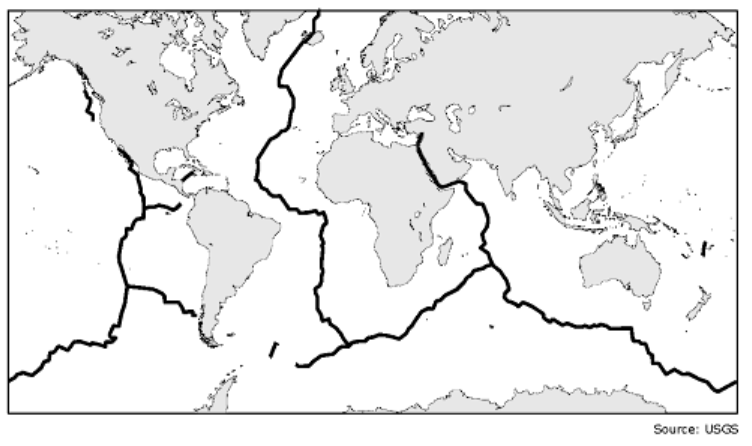
mid-ocean ridge
The rock below has a mass of 56 grams. What is the VOLUME of the rock?
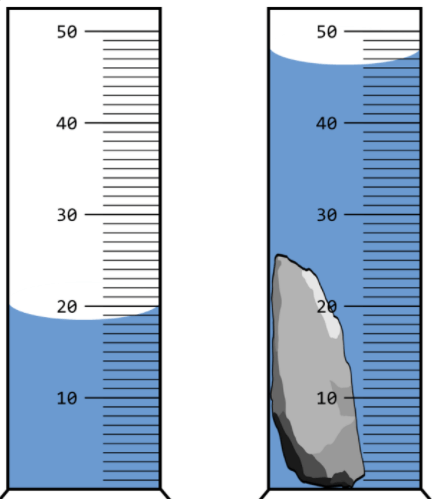
Answers that count as correct:
27.5 cm3 OR 28 cm3
Which of the following examples are chemical changes?
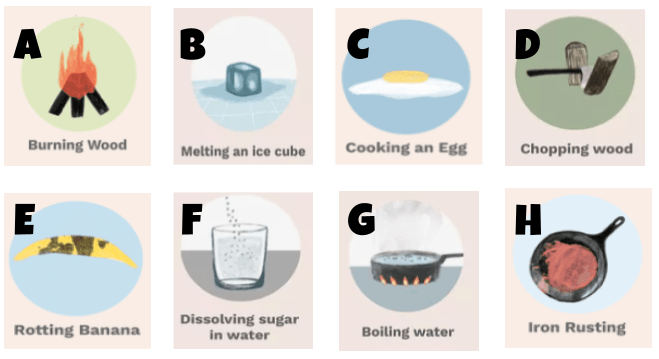
The chemical changes are...
A, C, E, H
Jenny is doing an experiment on what paper towel brand is best after realizing the paper towels at school barely absorb anything! She is going to test absorbency & strength separately. She gets the thin brown paper towels from school and a roll of Bounty from the store. Her mom buys Bounty, so that is the best brand from the store.
What is an observation that Jenny makes in the scenario above?
Possible answers:
-paper towels at school don't absorb well
-her mom buys Bounty paper towels
-the paper towels at school are thin
There are two mistakes in the table below. Name at least one of them.

Metals are malleable, Nonmetals are brittle.
With your hands, model a subduction zone.
Tell your partner the following:
1. Where the trench would be.
2. Which plate is the oceanic & which is the continental crust.
3. What type of plate boundary this would be.
You must get them ALL correct for credit!
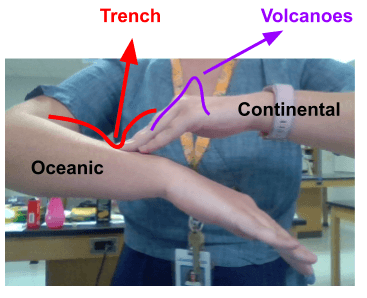 It's a convergent boundary!
It's a convergent boundary!
What plate is number 2?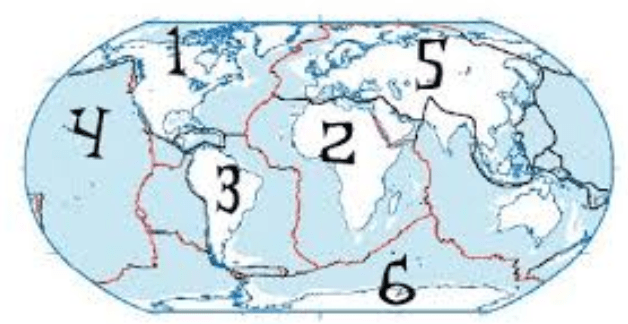
African
The hammer has a mass of 54 grams. What is the DENSITY of the hammer?
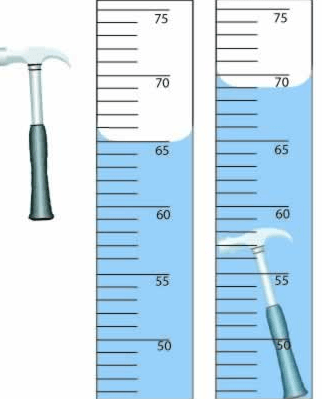
13.5 g/cm3
Some chemical changes are shown below. Determine which evidence of chemical changes is shown for EACH LETTER! You must get all 4 correct for credit.
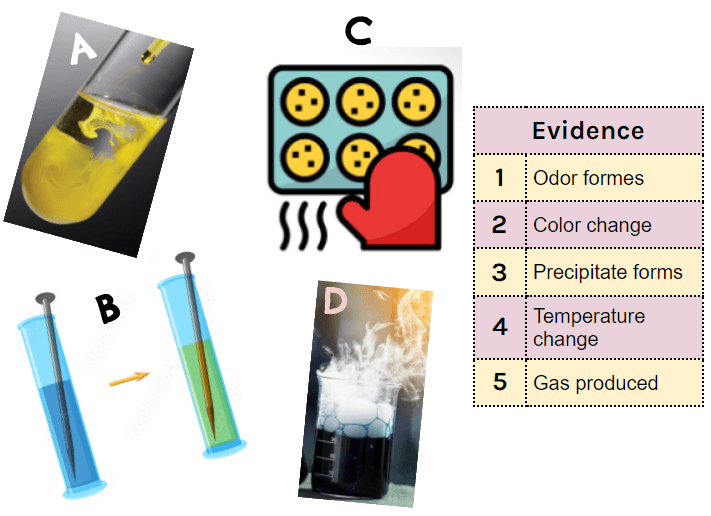
A-3 (precipitate formed)
B-2 (color change)
C-1 (odor formed)
D-5 (gas produced)
Jenny is doing an experiment on what paper towel brand is best after realizing the paper towels at school barely absorb anything! She is going to test absorbency & strength separately. She gets the thin brown paper towels from school and a roll of Bounty from the store. Her mom buys Bounty, so that is the best brand from the store.
What is an inference that Jenny makes in the scenario above?
possible answers:
-absorbency & strength are different
-Bounty is the best brand from the store
Which of the following samples are metals?
Which of the samples are metalloids?
Which of the samples are nonmetals?
You must get all 3 correct for credit!
Metals- A,F
Metalloids- C
Nonmetals- B,D,E
What are the TWO names we have for section #1?
What is the name of section #2?
What are the TWO names we have for #3?
You must get ALL questions correct for credit!
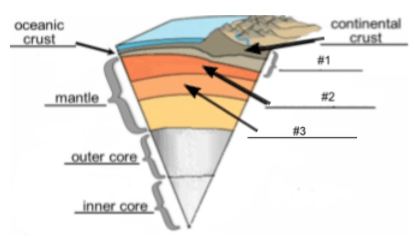
Section 1- Lithosphere & Tectonic Plates
Section 2- Upper Mantle
Section 3- Middle Mantle & Asthenosphere
Why won't we run out of magma?
Hint: Think about a convergent boundary.
Some plates subduct and the rock melts back into magma!